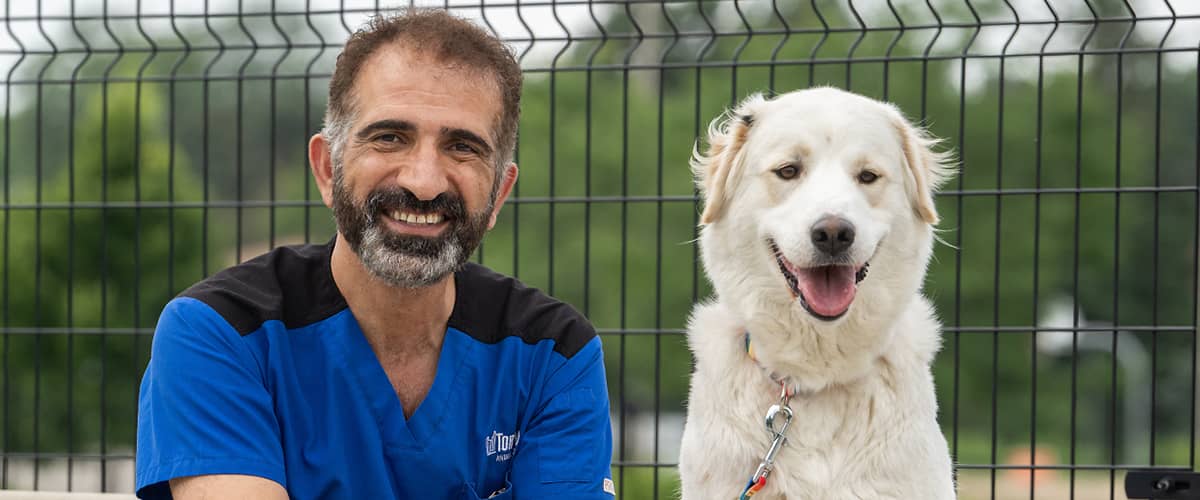

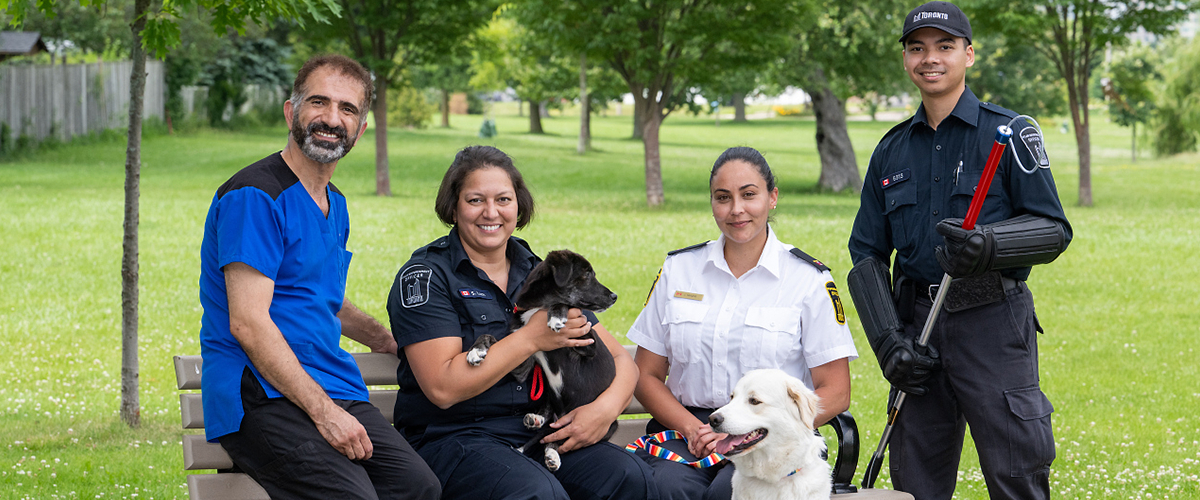
Public safety and animal wellness are the primary mandates of City of Toronto Animal Services. The team operates open-admission animal shelters, provides care to domestic and wild animals in Toronto, and continuously looks to improve its approach by reviewing best practices and developments in animal and urban wildlife management.
They are also focused on promoting the human-animal bond and keeping people with their pets, which is achieved through improving access to veterinary care and assisting with the provision of resources and supplies.
The revenue from pet licensing directly supports animal welfare programs in the community.
We are proud to call Toronto Animal Services an official Safe&Happy Partner. There are many ways to support this essential work, and we hope you'll join us in our mission to provide them with all the help and resources they need.
“We are hoping that the increase in revenue from pet licensing will assist with expansion and new programs and resources needed to deliver additional services and help sustain and enhance existing programs.”
-Esther Attard, Director, City of Toronto Animal Services/Veterinarian.
We need your help
One of Toronto Animal Services' primary challenges is limited staffing and budget resources. A shortage of qualified veterinarians and veterinary technicians makes adequate staffing difficult.
In addition, the rise in large dog surrenders and abandonments post-COVID-19 pandemic has added strain to shelters and made it more challenging to rehome and transfer dogs to rescue organizations.
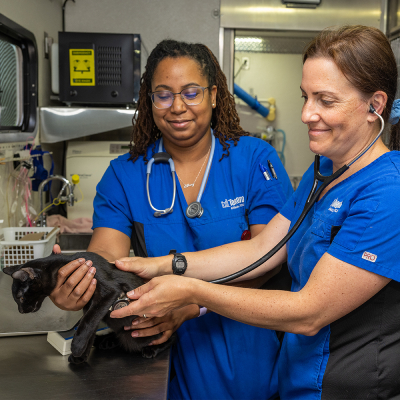
How to help:
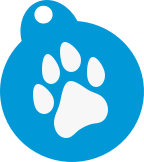
License your pet
Toronto Animal Services receives 100% of pet licence fees, which are essential to continuing these services. More pets who are licensed mean the ability to hire more staff and expand services within the community. As a result, fewer animals would need to be admitted into the shelter, and return-to-owner rates improve.
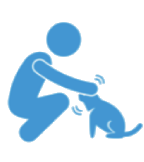
Volunteer
Residents can support Toronto Animal Services by volunteering at any of their three animal shelter locations and can help by walking dogs or playing with cats and small animals. Other ways to support the organization include fostering animals, complying with animal bylaws, adopting a pet from a TAS shelter, and sharing social media adoption posts.

Make a donation
Donations made to Toronto Animal Services are crucial in supporting stray, sick, and injured animals that require life-saving medical or surgical treatment to survive. These donations also help cover the daily expenses of caring for these animals. On average, it costs $25 per day to care for cats and $75 per day to care for dogs.
Donations also support programs to manage feral cat populations, humane approaches to controlling the pigeon population, and Spay Neuter Your Pet (SNYP) Truck operations. They also support enrichment and behavioural training programs to help animals prepare for their new home.
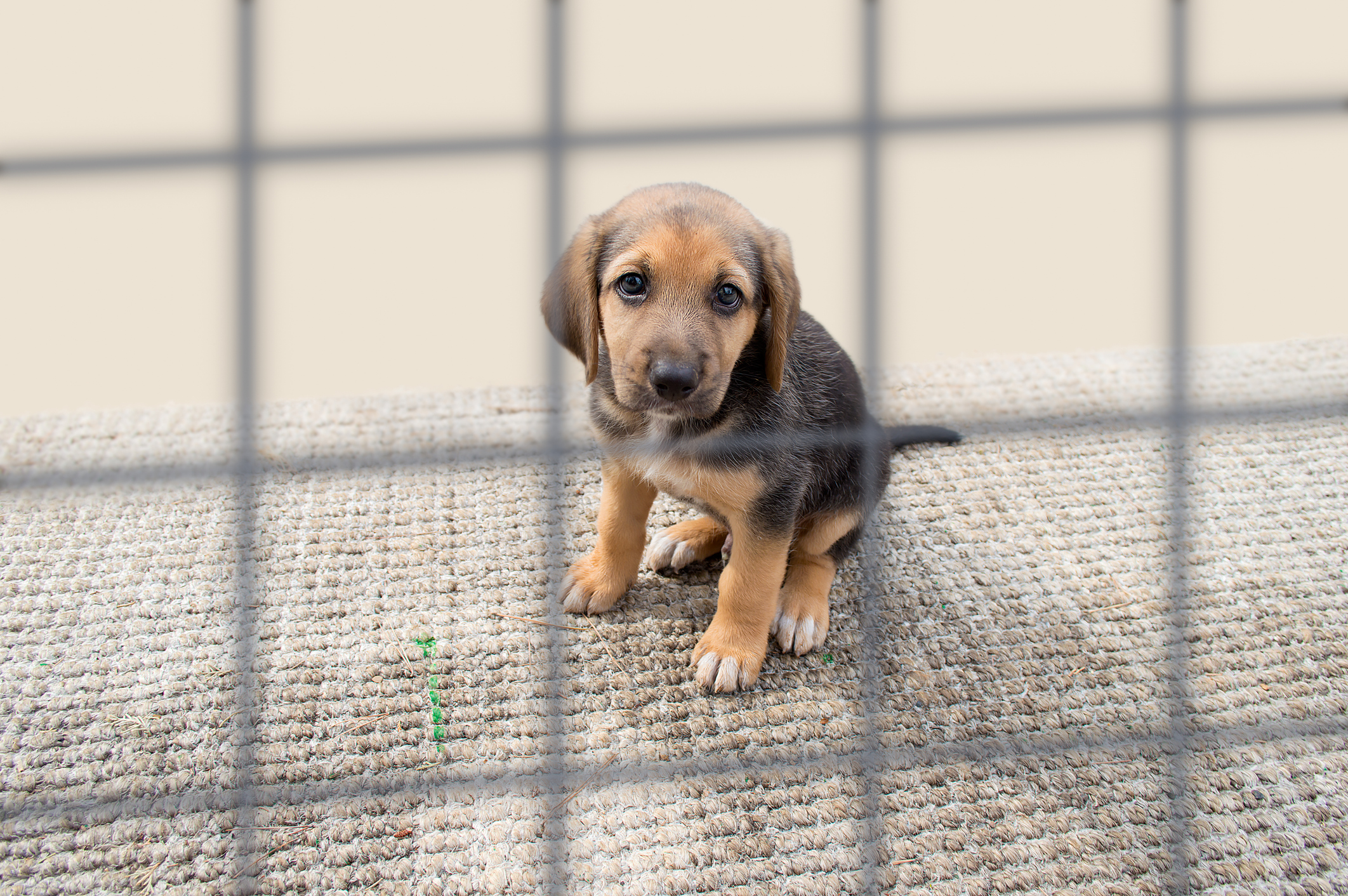
What is the Safe&Happy Fund?
In an effort to provide animal organizations with as much funding as possible, we created our Safe&Happy Fund. 100% of pet licensing fees and 20% of every designer tag sale provides additional funding for vulnerable animals and the staff that serve them. Pet owners are also given the option to donate to Toronto Animal Services during checkout.
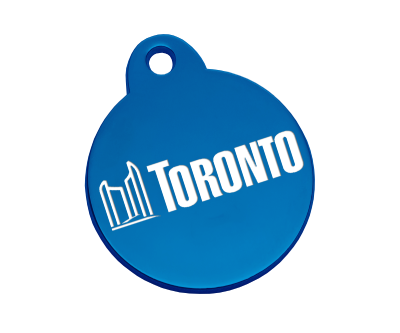
Impact by the numbers
With additional donations and revenue from licensing, Toronto Animal Services will be able to increase their impact in the community.

104
Staff Members
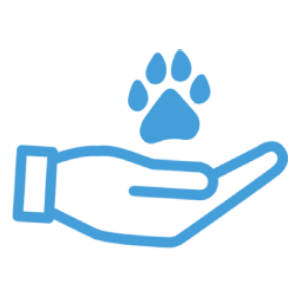
395
Pets Fostered
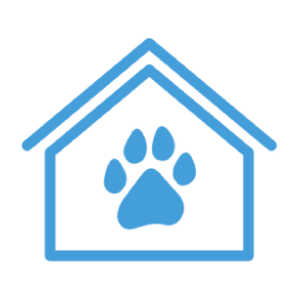
1,241
Pets Adopted
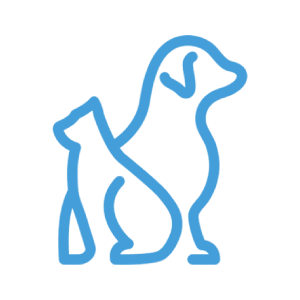
11,126
Pets Served
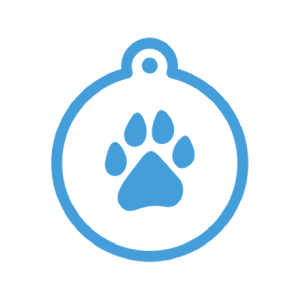
802
Lost Pets Reunited
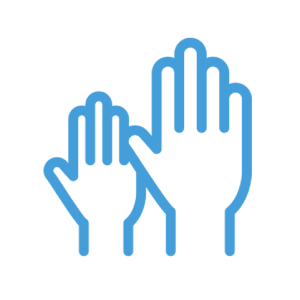
40
Volunteers
*Per year
More than just a shelter
Toronto Animal Services is far more progressive than traditional animal control organizations. They do more than “dog catching” and managing the shelter population. Rather than being reactive to the City's animal overpopulation, they aim to get ahead of issues by offering services and support to the community, increasing pet retention and decreasing shelter intake.
The SNYP Truck provides no or low-cost spay-neuter and wellness clinics in priority neighbourhoods to those pet owners with inadequate access to veterinary care. This program eliminates financial and logistical barriers that vulnerable communities face. Services are provided from a state-of-the-art 41-foot-long mobile veterinary clinic.
This program is funded through donations and costs approximately $60,000 annually to operate (not including staff wages). It is run by five staff including one Veterinarian and two Registered Veterinary Technicians. Since February 2016, more than 6,000 spay-neuter surgeries have been performed. Of those surgeries, 80% of clients had fees waived, and 10% had fees reduced.
Toronto Animal Services offers a mobile Chip Truck that provides affordable microchipping and rabies vaccination services to help with pet identification and ensure public and pet safety. The program is overseen by eight staff members, including one Manager, one Supervisor, one Chief Veterinarian, three Veterinary Technicians and two Administrative staff. In 2023, over 1,000 services were performed through the Chip Truck.
Volunteers positively impact the lives of animals by providing them with a warm and caring environment. Toronto Animal Services volunteers care for animals by walking dogs, cuddling cats and small mammals, and fostering pets in need. The program currently has 40 volunteers and is growing. View open volunteer positions.
An in-house training program has been implemented for shelter dogs to improve their chances of adoption and increase pet retention. The program provides enrichment activities and helps to develop obedience skills. It is managed by one Manager and three Supervisors and is supported by shelter staff, Veterinary Technicians and canine experts.
As of 2023, 155 training hours were completed with a canine positive reinforcement training expert across all shelters.
Toronto Animal Services is a member of the Toronto Feral Cat Coalition to reduce the overpopulation of feral cats through the Trap-Neuter-Return (TNR) approach. The program offers spay/neuter for feral cats, recovery space post-surgery and shares educational materials on feral cats and TNR.
The program is managed by one Manager, three Supervisors, one Chief Veterinarian, two Veterinarians and four Veterinary Technicians. Since the program began, more than 7,000 cats have been sterilized, vaccinated and microchipped.
Your licence fees at work
Millions of pets enter shelters each year. The critical care, compassion, and love that shelter workers and volunteers show these animals are unlimited, but unfortunately, the same can't be said for their budgets. When you license your pet, it isn't just a fee - but a lifeline - for animals like Diablo, Bee, and Hugo.
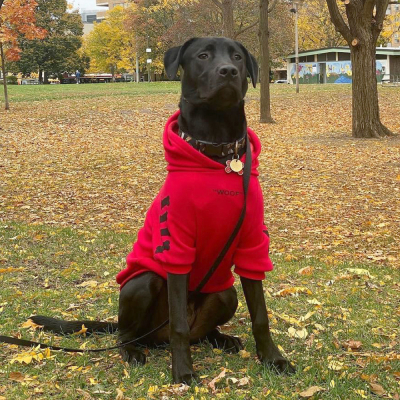
Diablo
Diablo (formally Linus) was just a puppy when brought to the East shelter. Thankfully, it wasn't long before he found his new forever home!
Here's what his new family had to say about their life with Diablo:
"Diablo has been with me since I got him in July of last year when he was just 6 months old. Today, he's just over a year old! Diablo has become my best friend! He is the friendliest, kindest, gentlest, and most loving friend anyone could ask for. He has learned so much in the past year, made friends and gets unlimited attention anywhere he goes! Diablo loves going for long walks, playing fetch, running, training, exploring every inch of a new place and eating so, SO much! His adventurous and loving personality makes him a joy to anyone who meets him. We can't wait for the endless adventures we have yet to have together!"
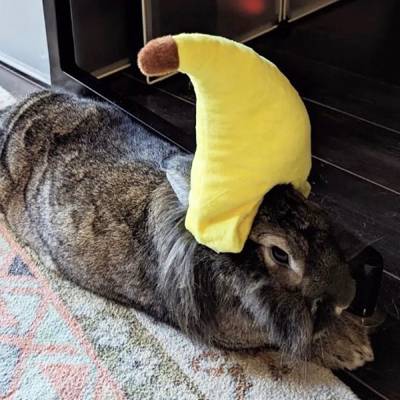
Hugo
This is Hugo, the big fluffy, floppy bunny and former resident of the Toronto Animal Services' West region shelter. He was a memorable bunny with his charming personality, love of fetching ping-pong balls, exploratory nature, and odd distaste for bananas. (What bunny doesn't like bananas?) Hugo celebrated his 1st adoption anniversary, also known as his “Gotcha Day.”
Here's what his new family had to say about Hugo!
“We brought Hugo (aka Hyoogs) home from the Toronto Animal Services' West shelter in Etobicoke. He's been the best emotional support rabbit, reading companion, and weather checker anyone could have. This year, he's become OBSESSED with bananas, loves watching movies and shows with some nice romaine or parsley snacks in the evenings, and looks out the window to check the weather before snoozing the afternoons away...To many more years together 💖”
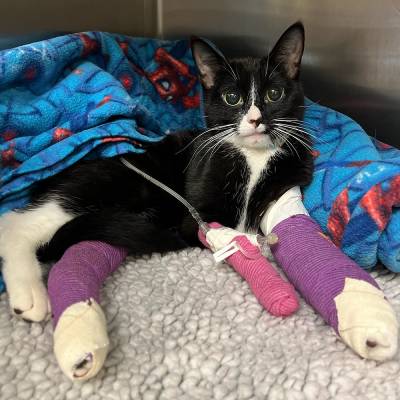
Bee
Bee is a 2-year-old cat that was surrendered to Toronto Animal Services after falling out of a balcony window. Her hind leg sustained devastating open multiple fractures and will be amputated as the surgeon deemed it could not be repaired. There is laxity in her front limb caused by overstretching of the tendons and ligaments and a fracture, which will be managed conservatively with splinting.
She will be going to foster care after surgery for several months to recover from her severe injuries, and when she has healed, she will visit Toronto Animal Services' spay-neuter clinic, and finally, she will become eligible for adoption!
More about City of Toronto Animal Services
We sat down with Esther Attard, Director, City of Toronto Animal Services/Veterinarian, to learn more about the vital work being done for local animals in need at Toronto Animal Services. Here’s what they had to say:

What is most rewarding about being a part of your organization?
Providing access to veterinary services to pet owners and the animals in the care of Toronto Animal Services, improving the welfare/wellness of animals.
In your words, why is it important for residents to license their pet, and what impact does that have on your organization and community as a whole?
It is important for pet owners to license their pets because it provides identification and assists with returning pets to their owners should they become lost. Licensing revenue supports Toronto Animal Services programs that are in place to assist pets, wildlife, and the public.
What is something that makes your shelter unique?
Toronto Animal Services has highly experienced veterinarians on staff, which sets us apart. Very few municipal animal services have staff with experience in shelter medicine and surgery. Having experienced veterinarians and veterinary technicians on staff makes a huge difference in the quality of care and services that shelter animals receive.
What is the best piece of advice you have for pet owners?
License your pets, keep your information up to date and ensure your pets wear their identification tags when they are out in public.
Is there anything else you would like people to know about the organization?
Toronto Animal Services cares deeply about animals, and all programs support animal wellness/welfare and public safety.
